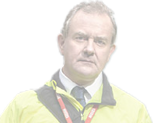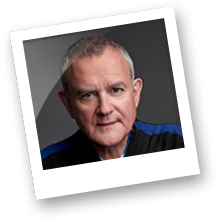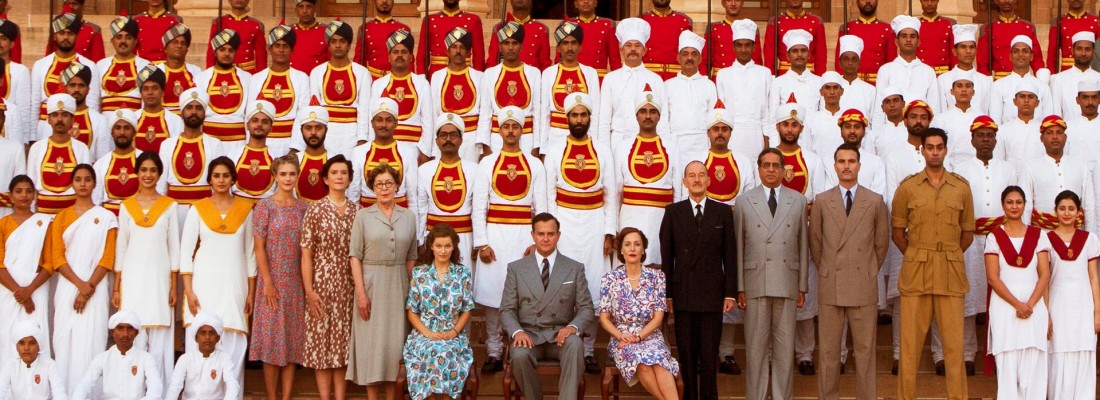Interview by Anna Walker for Reader's Digest
Star of Downton Abbey and new film Viceroy’s House, Hugh Bonneville speaks to Reader’s Digest about his gap year, Brexit and the joys of storytelling.
“Britain had a stranglehold on India for centuries, and when the chance of an exit finally emerged it had become a ship on fire.”
We’re talking about colonialism. Hugh Bonneville’s latest film, Viceroy’s House, is a bold historical epic in which he plays the infamous Lord “Dickie” Mountbatten, the statesman tasked with handing India back to its people.
It was a particularly troubled chapter of the former British Empire’s history that led to the foundation of Pakistan. Although the events unfolded only 70 years ago, many of us remain astonishingly unaware of just how seismic the tragedy was.
“It became even more emotional because of what was happening in Syria”
“I only had a sprinkling of schoolboy history [before taking the part], which was inevitably told through the British point of view,” says Hugh. “The caption at the beginning of this film says, ‘History is written by the victors’, but in one sense there are no victors, and there’s no such thing as objective history. To have an Anglo-Indian filmmaker such as Gurinda tell it from her perspective puts a whole new colour on that passage of our history.”
For director Gurinda Chadha, the force behind Bend It Like Beckham and Bride and Prejudice, Hugh was the obvious choice to play Mountbatten.
The Sussex-based actor is known for playing likeable—if somewhat bumbling—Englishmen, on both the big and small screen. A lead role as the Earl of Grantham in ITV’s period drama Downton Abbey saw Hugh reach international star status, as he presided over the stately home for six spectacularly popular series.
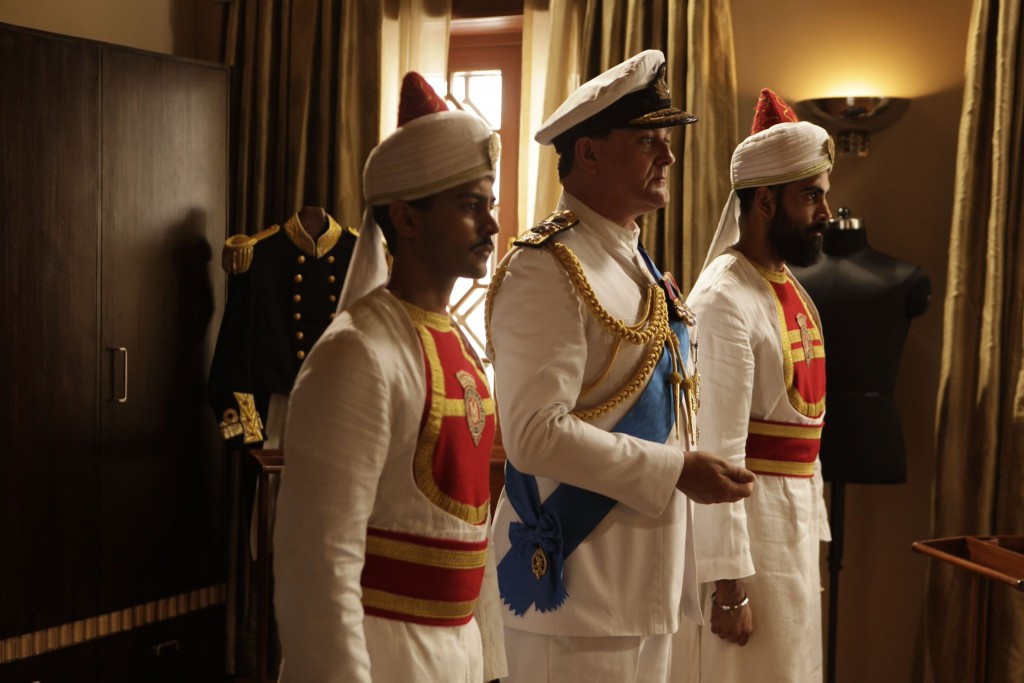
“He has that wonderful British quality of being terribly sympathetic while still being in charge,” Chadha explains. “He’s slightly self-effacing, but very confident, and genuinely concerned about morality and fairness on how things should be.”
Indeed, Hugh’s moral concerns come up frequently when speaking about Viceroy’s House. He admits he found facing up to the scale of the tragedy an emotional challenge. Partition, the process through which the British divided the British Indian Empire into India and Pakistan, was a bloody affair. Fourteen million people were displaced in the largest refugee crisis the world has ever known, and one million died in the process.
“The thing that first brought it home to me was aerial footage of the streams of people—hundreds of thousands of them— travelling in different directions along the same road,” Hugh explains. “It became even more emotional because of what was happening in Syria and the plight of those refugees who were leaving North Africa, trying to escape into a better future.”
“This is what happens if you divide—this is what happens if you build walls and drive people out”
And it’s not just the tensions abroad that preoccupied the actor’s mind during filming; Hugh’s conscious of the film’s significance for problems at home too.
“I’ve never felt such a peculiar shift in our cultural certainties as I have over the last year,” he says of British politics. “I think the scandalous way that Brexit was presented to us as a yes/no concept will have its fall out in the coming years.”
“If this film has a deeper resonance, it’s warning that this is what happens if you divide—this is what happens if you build walls and drive people out.”
Hugh pauses, taking what seems like his first breath of the entire conversation. “Of course the world still turns and the sun still rises and sets but, gosh, we don’t half make it difficult for ourselves sometimes,” he says.
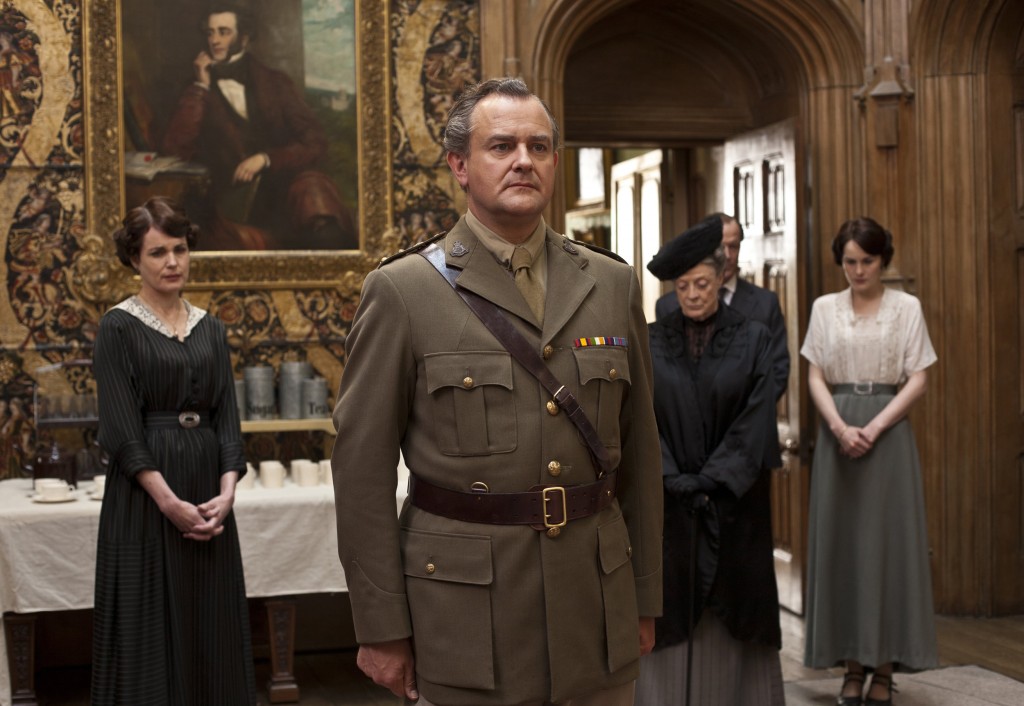
Despite being the master of the British stiff upper lip on screen, it’s clear that in real life, Hugh has a sense of humour about himself. He cringes as he recollects one particular day on location.
“While we were filming at the Maharajah’s Palace, which is now a working hotel, we would constantly have to pause while people trotted out in their bathrobes to go down to the swimming pool. We were stood there in our finery and there they were there in flip flops,” he laughs. “But they were very tolerant of us.”
Never is Hugh more passionate than when talking about India. He first fell in love with the country as a teenager. Prior to studying theology at Cambridge—where he was taught by the former Archbishop of Canterbury, Rowan Williams—Hugh embarked on that very English tradition: the gap year. He travelled across North India by train, with little more than his backpack and a few pennies to spend each day. His time in the country was brief—just six weeks—but “the memories of the colours and the smells, the vibrancy and the contradictions stayed with me all my adult life.
“I’ve never felt such a peculiar shift in our cultural certainties as I have over the last year”
“Driving through the towns and cities, you’ll see two or three people on bikes and motorbikes and tuk-tuks and cows and dogs in the street. Everyone just weaves in and out, like an army of ants. There seems to be no order and yet everybody gets by. Here we have traffic lights and roundabouts and yet you never seem to stop hearing about road rage.
“There seems to be something in the Indian psyche that just manages to get along and I love that about them. When I went back to do the film, it was like putting on a really familiar piece of clothing.”
It’s clear that Hugh, now 53, was crafting his experiences into stories from a young age. The son of a surgeon and a nurse, he credits his theatre-going parents with igniting his passion for storytelling. “They took me to the Peter Brooks production of A Midsummer Night’s Dream when I was about eight and I was completely intoxicated by it. My dad was a great storyteller and I used to love listening to his made-up yarns as I dozed off to sleep at night. I think my desire to act started way back then.”
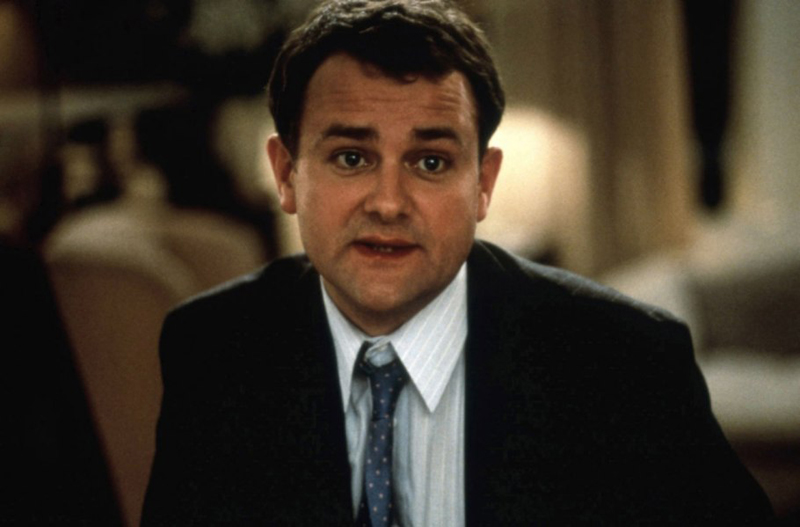
Although he’s barely left our screens since the Nineties, when he first found fame as the lovable sap Bernie in Notting Hill, Hugh insists, “I’m definitely slowing down a bit now, having been a workaholic for 30 years.”
It’s a sentiment that’s hard to believe. With three films already confirmed for release this year (including the hotly anticipated Paddington 2) and production well underway for the new series of the BBC’s self-deprecating sitcom, W1A, Hugh’s a busy man. And with writer Julian Fellowes recently confirming rumours that he’s been working on a script for a Downton Abbey movie, it seems Hugh’s prolific career won’t be decelerating anytime soon.
Is he ever tempted to step away from the spotlight?
“One of the greatest thrills of my career was co-producing a play in the West End,” he reveals. “I love that side of things, because you’re behind the scenes, making the machinery work. That gave me a huge buzz and I’d perhaps like to do the same on screen in my twilight years.”
“I’m very happy doing my day job for now though,” he adds. “I’ve always cherished sitting in the dark and just experiencing a story. Having one’s imagination fed is vital—it’s what makes us human.”
Viceroy’s House is in UK cinemas from 3 March




